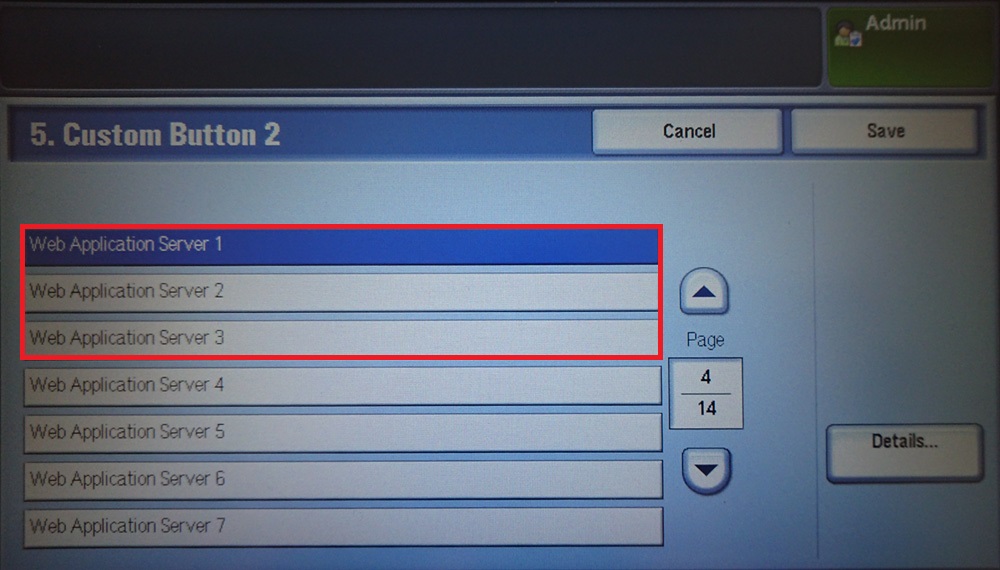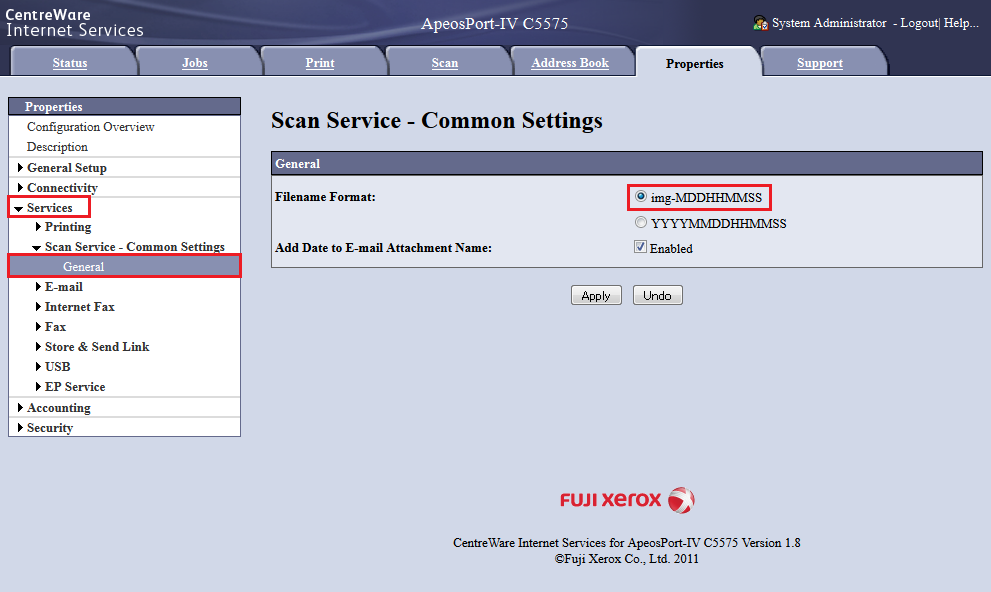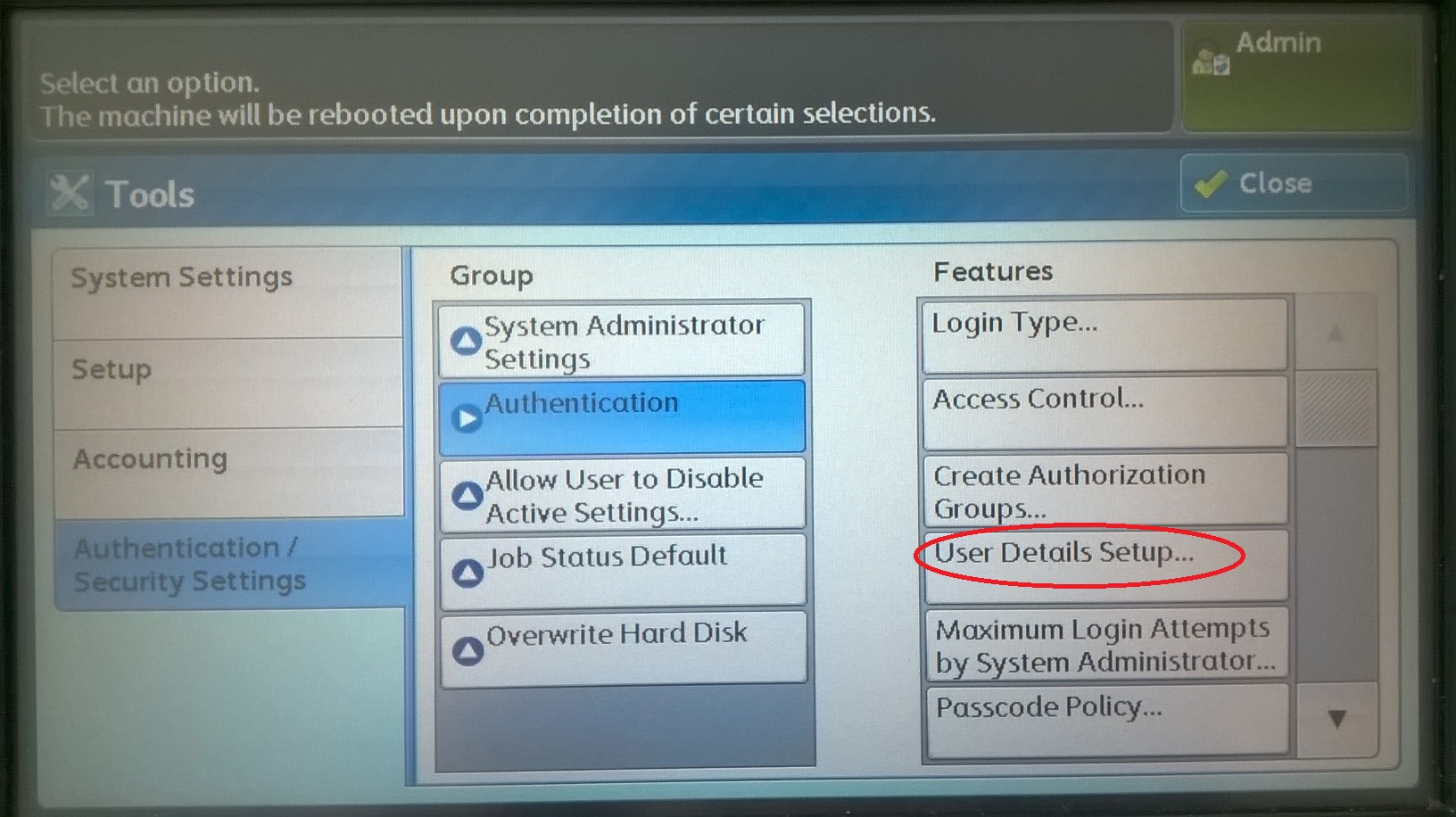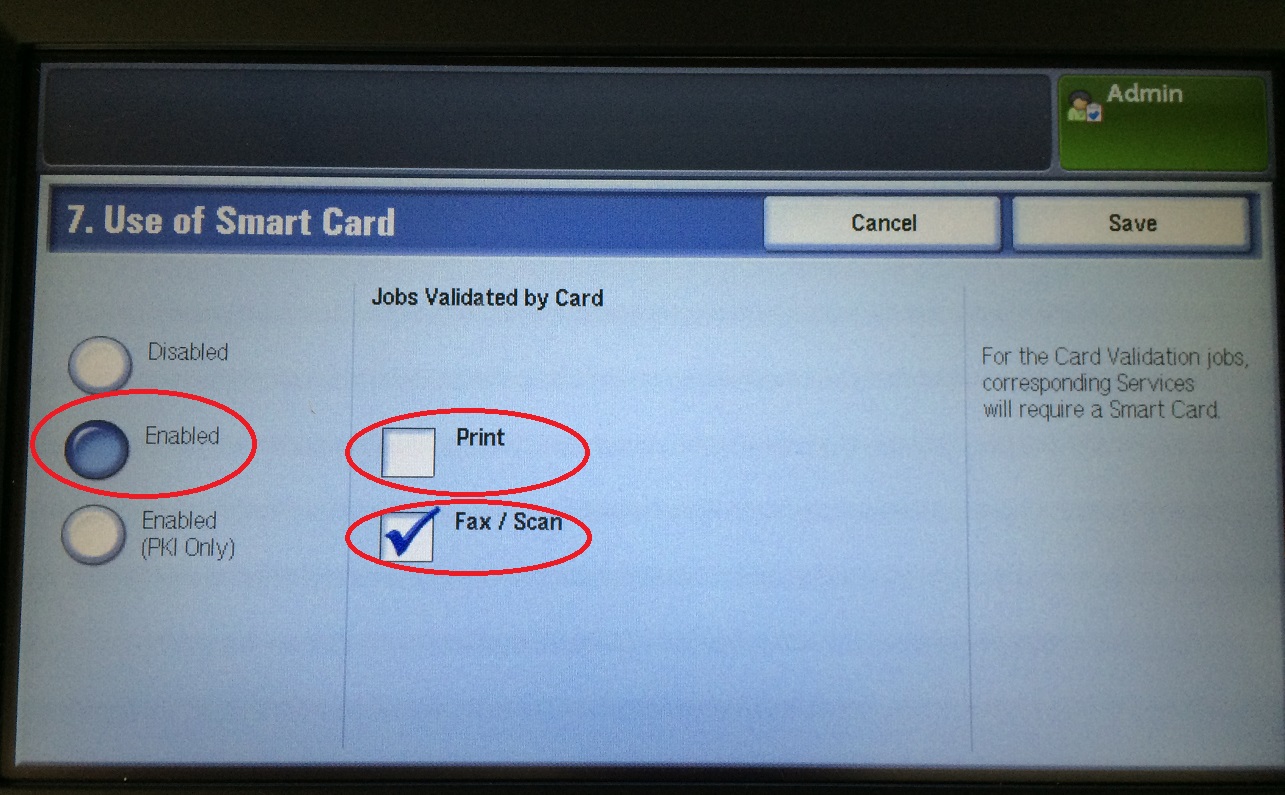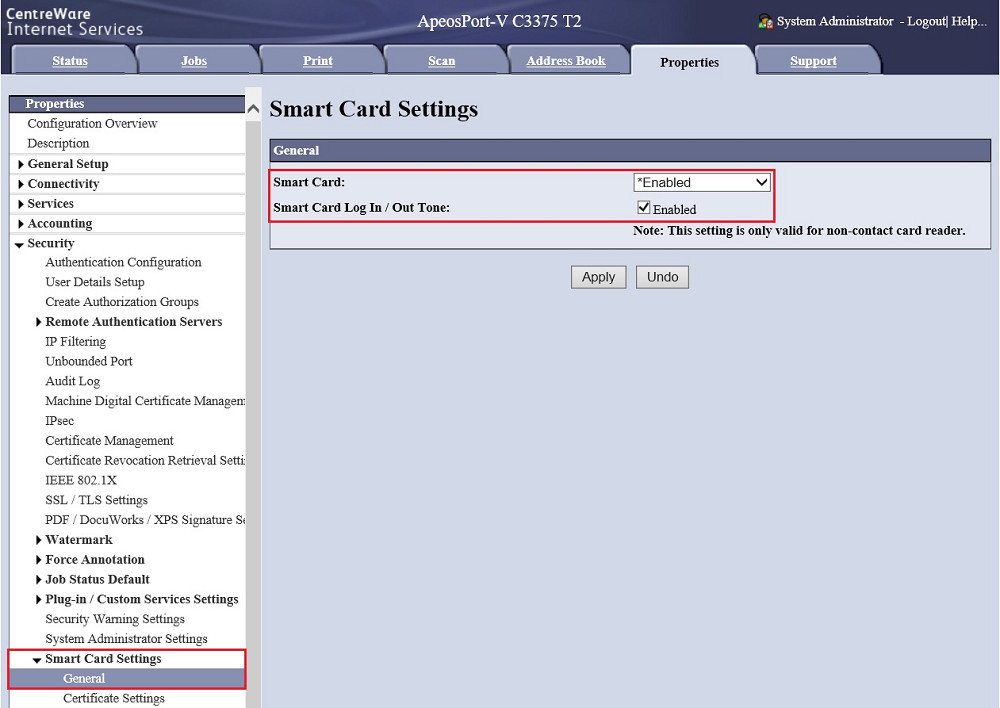Configuring Fuji Xerox XCP ApeosPort-VI and older
Requirements
Device has to support the YSoft SafeQ Embedded Terminal, supported devices are listed on the Partner Portal in the Hardware Compatibility List (HCL).
Device has to support eXtensible Customizing Platform (XCP) versions 1.2+ (for YSoft Terminal Application - 2nd Gen. is required version 1.4+).
External Access Kit (Web Browser, EBW v4) and Customize Extension Kit (XCP, Plug-in) are installed (Should be done by Fuji Xerox service engineer).
Proper NVM is set in service mode (Should be done by Fuji Xerox service engineer).
If you are planning on using Elatec TWN4 reader, make sure the reader has Keyboard standard firmware.
Limitations can be found on page Requirements and known limitations of YSoft SafeQ Embedded Terminal for FujiXerox.
General Notes
During MFD configuration, MFD sometimes requires reboot. When prompted for reboot, follow the instruction displayed either on CentreWare Internet Service or on MFD operation panel.
Make sure that External Access Kit and Customize Extension Kit are installed and configured at the MFD.
General configuration
Login to MFD as a system administrator and go to Tools.
Default credential is 11111.
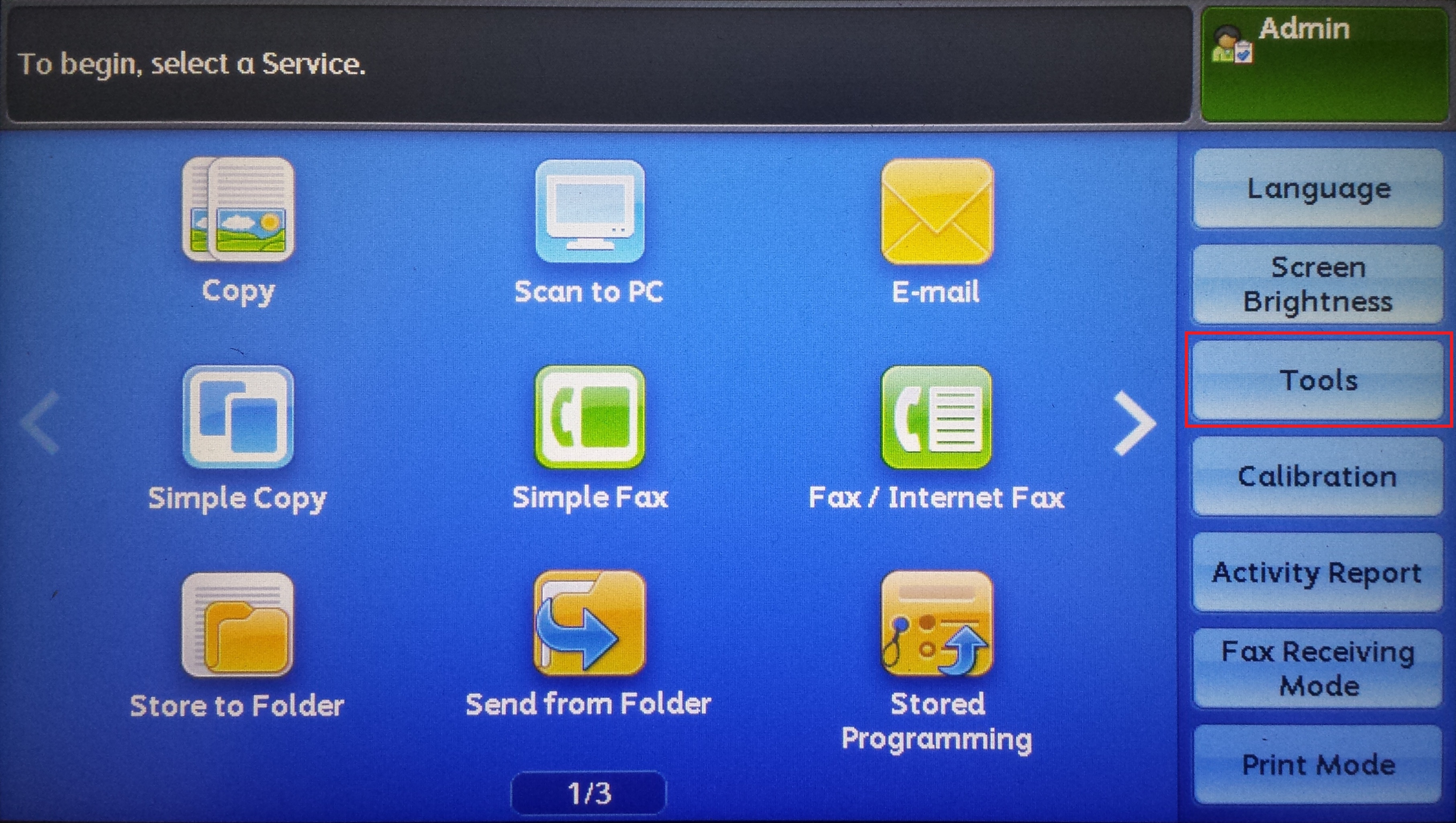
Clear job history by deleting all data
This is optional.
If you want to clear all previous settings and job data, you can do so by the operation bellow.
Go to System Settings > Common Service Settings > Maintenance and tap Delete all data
Configure network
Configure static IPv4 address.
Go to System Settings > Connectivity & Network Setup > Protocol Settings
Configure timezone
Configure time zone, date and time according to the server running YSoft SafeQ.
Go to System Settings > Common Service Settings > Machine Clock/Timers
Time Zone
Date
Time
Set these options in the aforementioned order, because the Time Zone setting has effect on the Time setting.
Configure NTP
This is optional
Go to System Settings > Common Service Settings > Machine Clock/Timers
NTP time synchronization: On
NTP server address
Configure waiting time to release print job
This is optional
Go to System Settings > Common Service Settings > Machine Clock/Timers
Auto Print: 1 Seconds
Configure auto completion of email address in native scanning application
This is optional
Go to System Settings > E-mail/Internet Fax Service Settings > E-Mail Control
Add Me to "To" Field
Add Me to "Cc" Field
Configure access control
Configure access to device functions
To restrict access to walk up functions by YSoft SafeQ user access right setting, the setting bellow need to be configured.
Go to Tools > Authentication/Security Settings > Authentication > Access Control > Device access and s et Device Access to Locked.
By configuring this, YSoft SafeQ authentication screen becomes the home screen and the user need to authenticate to access to any functions.
If the administrator wants to define access to individual function separately, configure Service Access instead of Device Access.
After uninstallation of the Embedded Terminal from the MFD, these settings need to be set to Unlocked in order to allow access to the MFD's functions again.
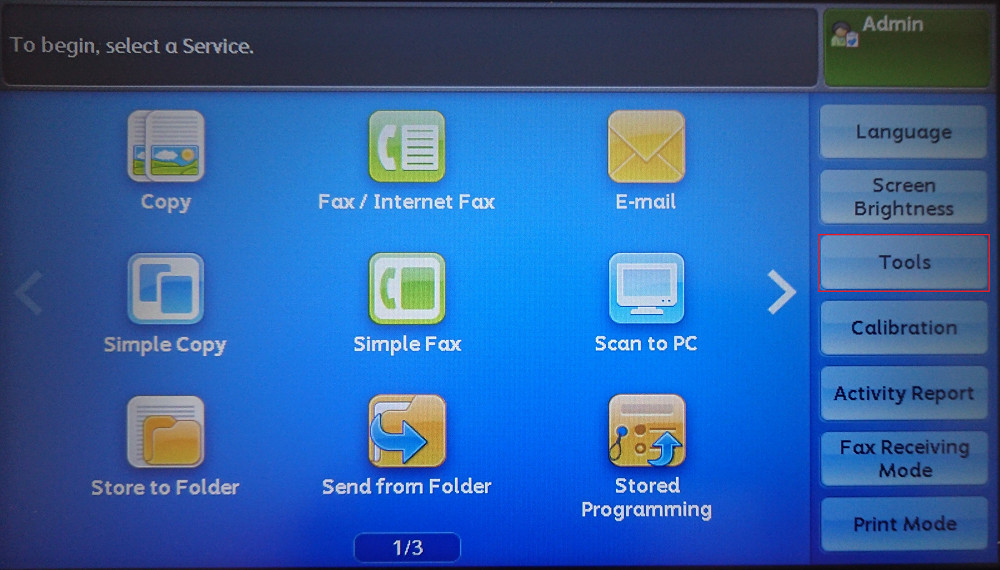
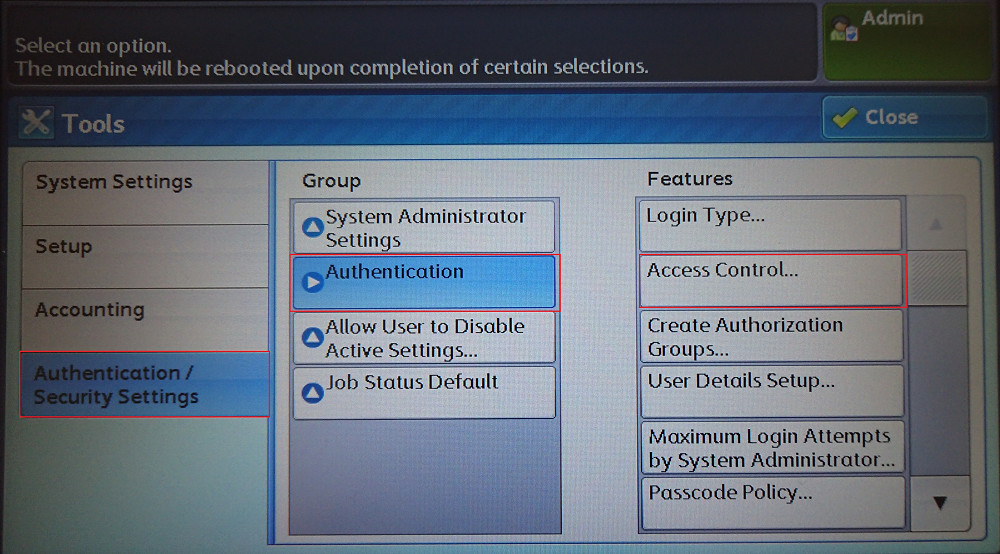
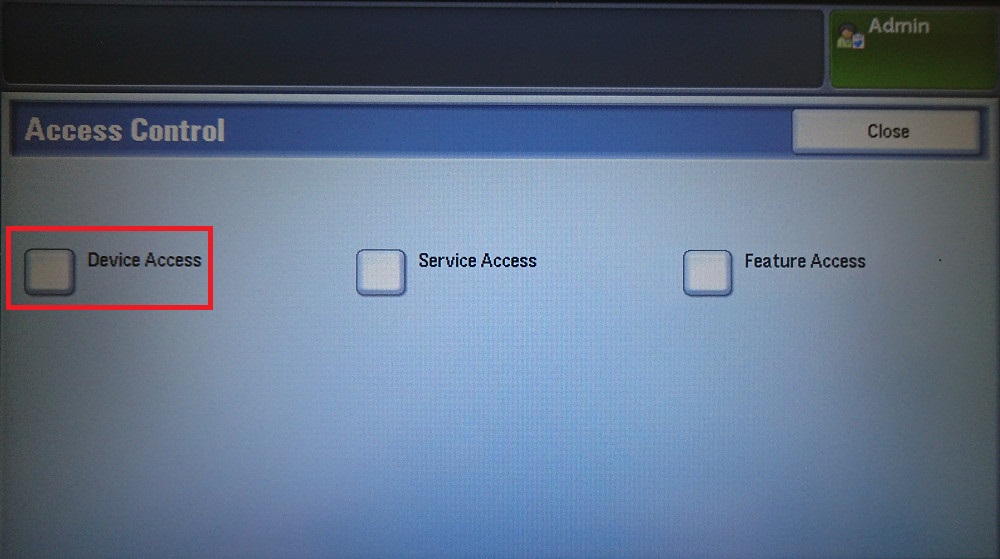
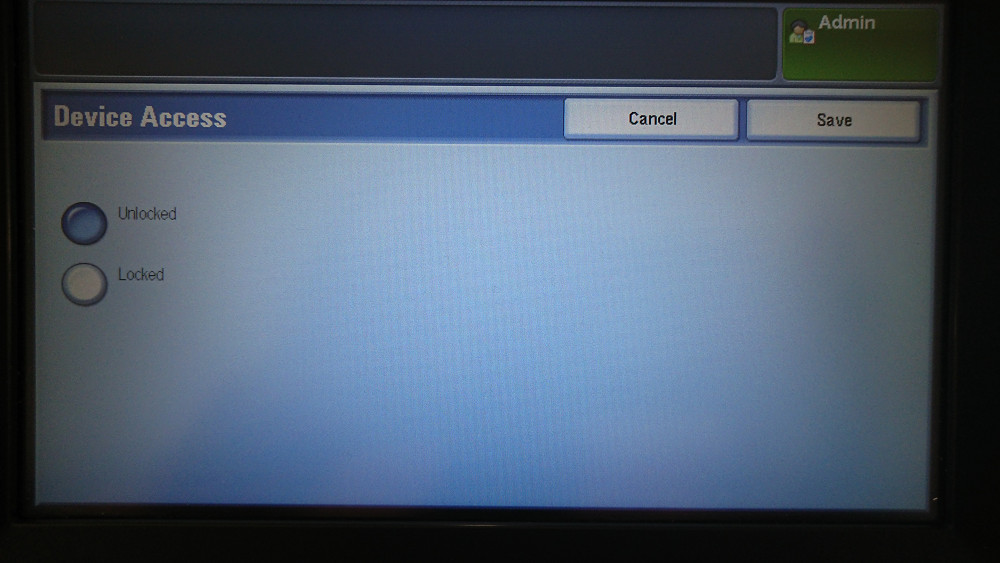
Configure color copy restriction
For XCP plugin terminal to restrict access to Full color copy by YSoft SafeQ user access right setting, the setting bellow need to be configured.
Go to Tools > Authentication/Security Settings > Authentication > Access Control > Feature access and s et Color Copying to Locked.

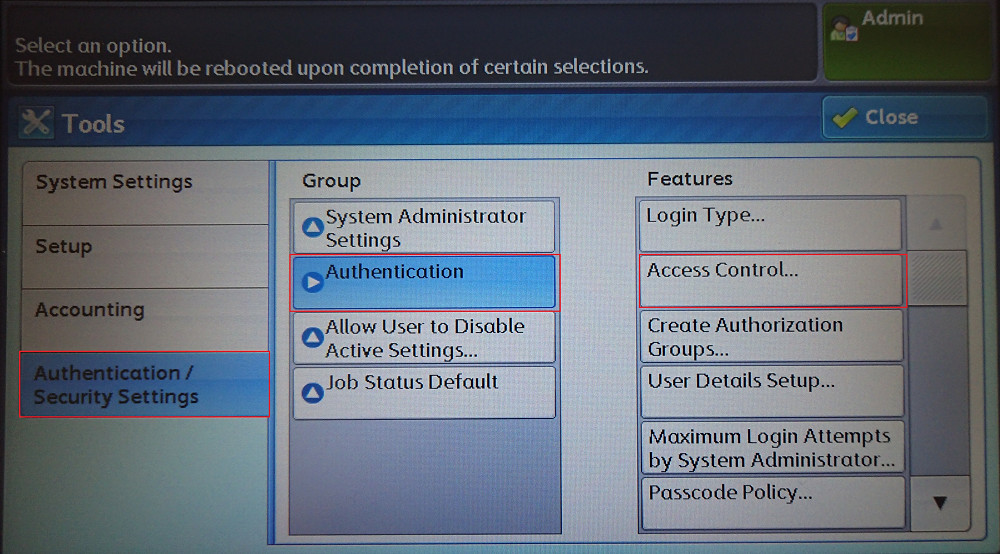
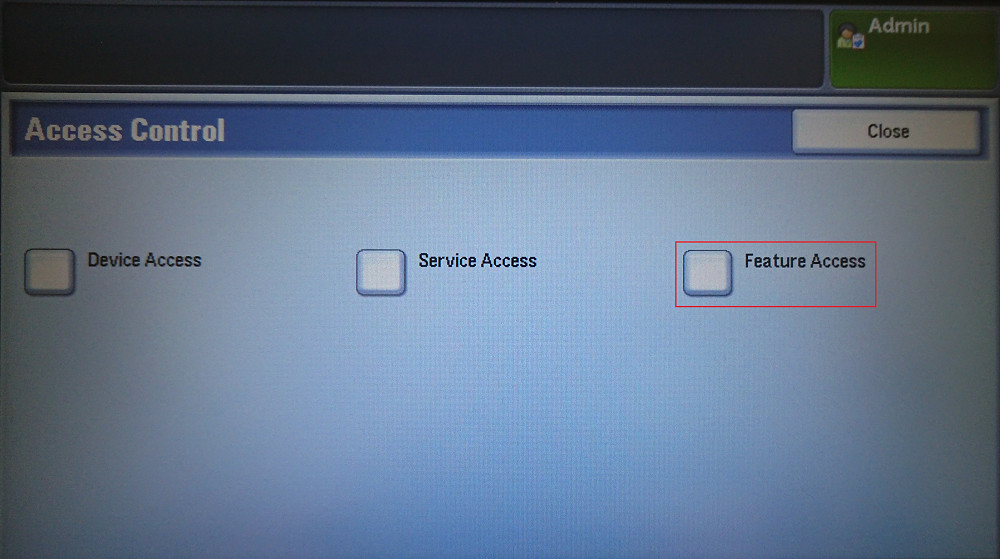
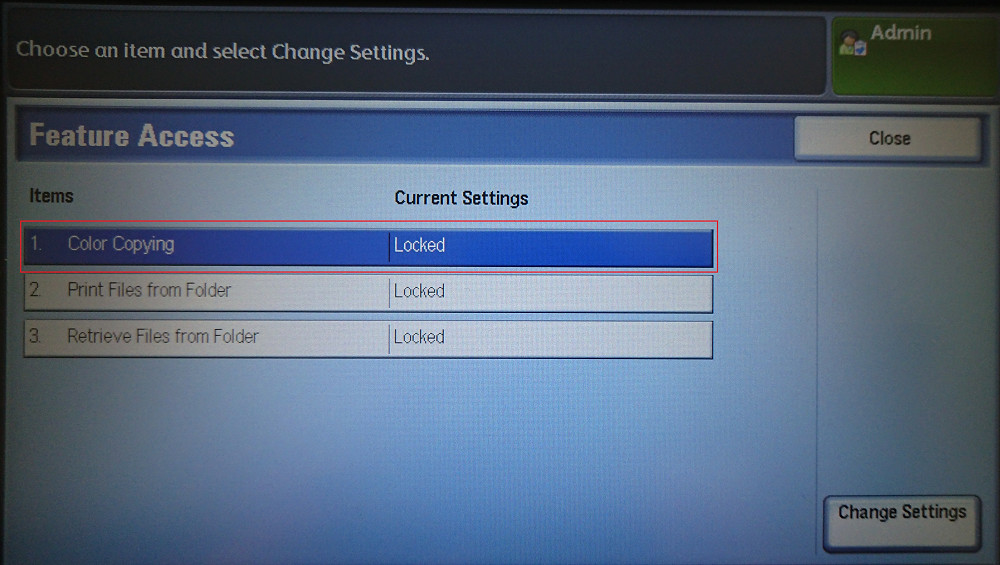
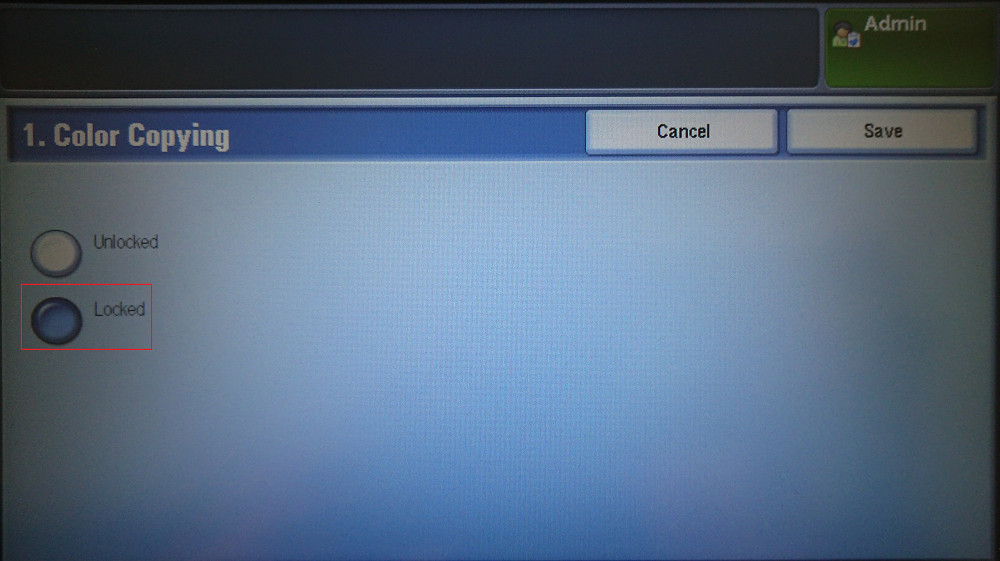
Configure security
Access to MFD at http://MFP_IP_Address using Web Browser
Following screen will be displayed. Then click Properties tab. Authentication dialog pops up. Type in admin credentials. (Default credential is username: 11111, password: x-admin.)

Machine Digital Certificate
Go to Security > Machine Digital Certificate Management > Create New Self signed Certificate

Public Key Size – Leave it as default.
Issuer – MFD address (entered by default).
Days of Validity – Set a number of days.
Click Apply.

SSL/TLS
Go to Security > SSL/TLS settings
Enable HTTP - SSL/TSL Communication.
Click Apply.

To enable the Verify Remote Server Certificate option on MFD, the Terminal Server certificate has to be manually uploaded to Trusted CA Root Certificates on MFD (Properties - Security - Certificate Management).
Manual certificate upload might not be supported on all devices.
Configure protocols
1 Verify Secure HTTP/S port is enabled. (By default enabled)
Go to Connectivity > Protocols > HTTP
Check that Secure HTTP(SSL) is enabled. If it is not checked, check it and click Apply.
2 Enable SNMP and define SNMP Read/Write community
Go to Connectivity > SNMP configuration.
Enable SNMP Port Status.
Enable SNMP SNMP v1/v2c Protocols.
Click Edit SNMP v1/v2c properties.

Define Community Name (Read Only) as public.
Define Community Name (Read/Write Only) as private.
Click Apply.

3 Verify both SOAP and FTP Client are enabled
Go to Connectivity > Port Settings.
Check that both SOAP and FTP Client are enabled. If not, check them.
The port 9100 needs to be disabled only for improving security. You need to enable this port when performing a firmware upgrade.
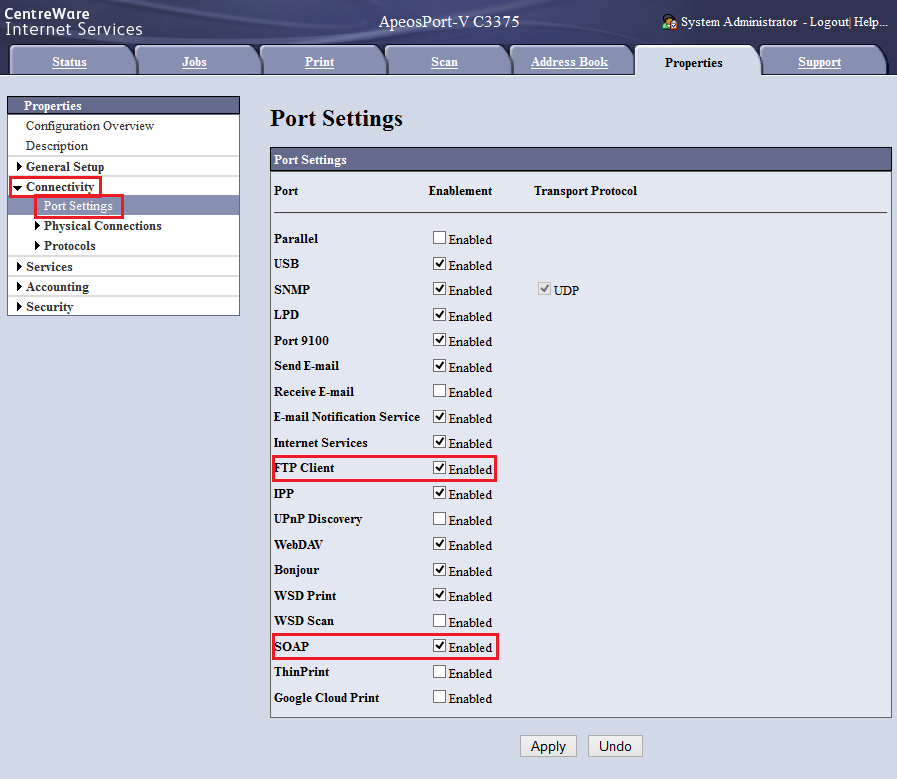
Configure Plug-in
Go to Security > Plug-in Settings > Plug-in Settings
1 Enable Plug-in Settings(Default disabled)
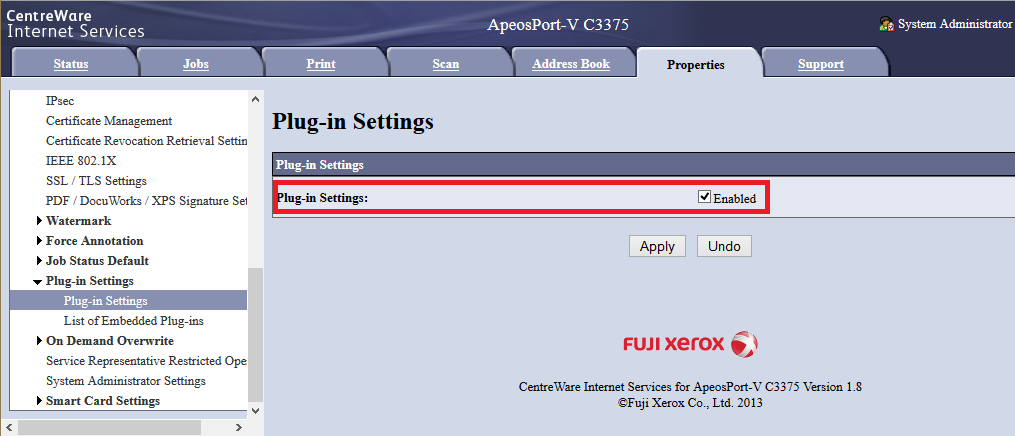
2 Disable Signature Verification when Adding/Updating (Default enabled)
Disabling Signature Verification when Adding/Updating is important, or XCP terminal installation fails.
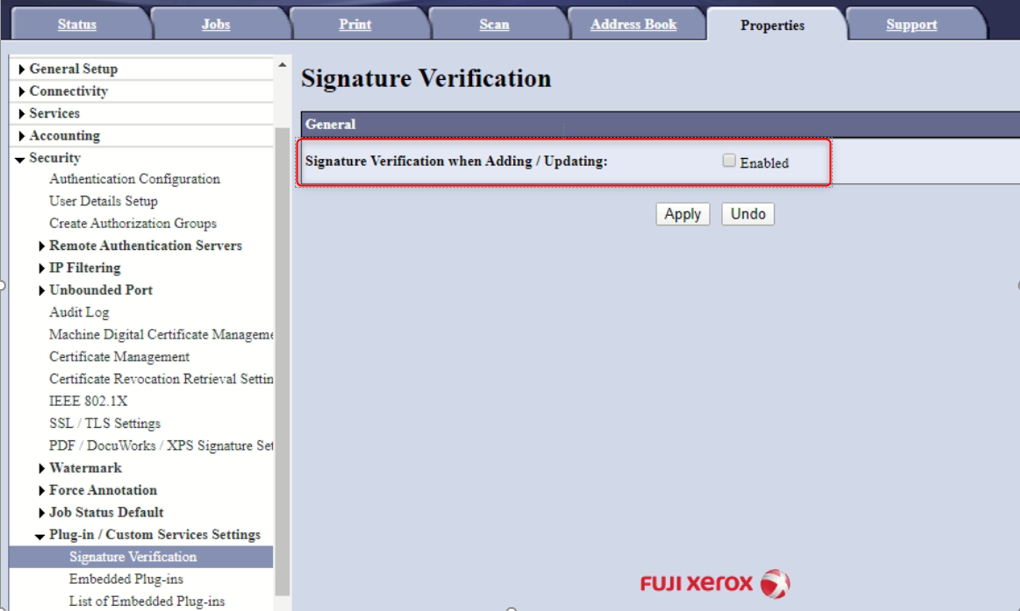
Configure Track Print Jobs with Accounting/Billing device for direct printing
Do this configuration if your device has this configuration menu.
In order to use direct print feature without authentication to device before print perform following steps:
Go to Accounting > Accessory settings.
Uncheck/disable option Track Print Jobs with Accounting/Billing device.
Click Apply.
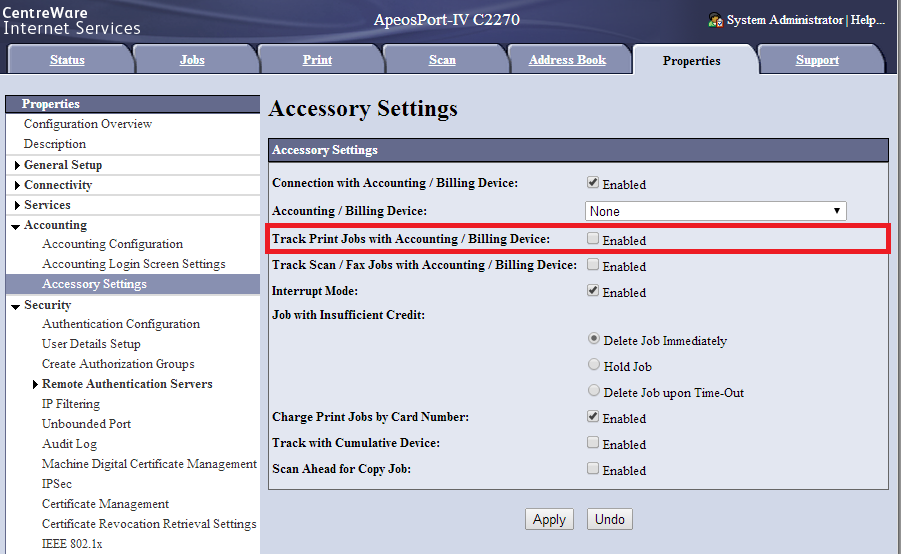
Reboot machine to apply changes.
Configure card reader support
If you are planning on using authentication with card, set the following property to Enabled, otherwise set it to Disabled.
Device panel: Go to Authentication/Security Settings > Authentication > User Details Setup
Web administration interface: Go to Security > Smart Card Settings > General
Set Use of Smart Card to Enabled,
Print to Card Validation Off (if set to ON, releasing print jobs requires Card swipe),
Fax/Scan to Card Validation Off or On.
Click on Save.
Do not enable Use of Smart Card when Card Reader is not connected or you will not be using authentication with card.
Device panel | Web administration interface |
|
|
Configure accounting settings
For ApeosPort to report accounting of print jobs to print jobs delivered by the YSoft SafeQ system, this configuration is required. Also if this configuration is not done, ApeosPort requires authentication for print request and stores print jobs without authentication information to the internal storage.
This requires Fuji Xerox Customer Engineer do this onsite.
1 Input in Chain-Link and corresponding value as 701-436=0
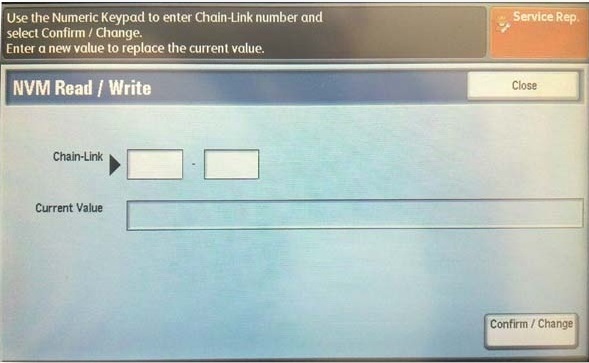
2 Reboot the machine if required.
YSoft SafeQ Payment System settings
This configuration is required if SCAN should be also managed based on credit/quota via Payment System.
This requires Fuji Xerox Customer Engineer do this onsite.
The following settings is required to be done in order to make scan control (scan quota which limits number of scanning page) working on Fuji Xerox devices.
Set NVM 850-015 = 1 will enable the control. Set NVM 850-015 = 0 will disable the control.
1 Input in Chain-Link and corresponding value as 850 -015=1
2 Reboot the machine if required.
Configure SafeQ application buttons on Home screen
After installation of Terminal Embedded to ApeosPort, you can customize the home screen button layout so that you have easier access to YSoft SafeQ applications.
1 Navigate to System Settings > Common Service Settings > Screen/Button Settings > Service Home
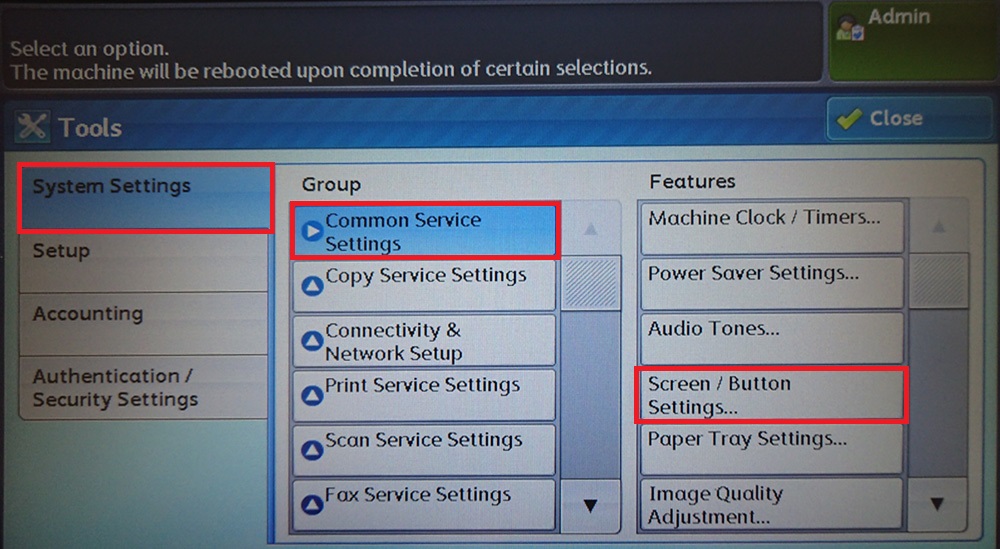
2 Press a button item which you want to replace with SafeQ application and press Change Settings
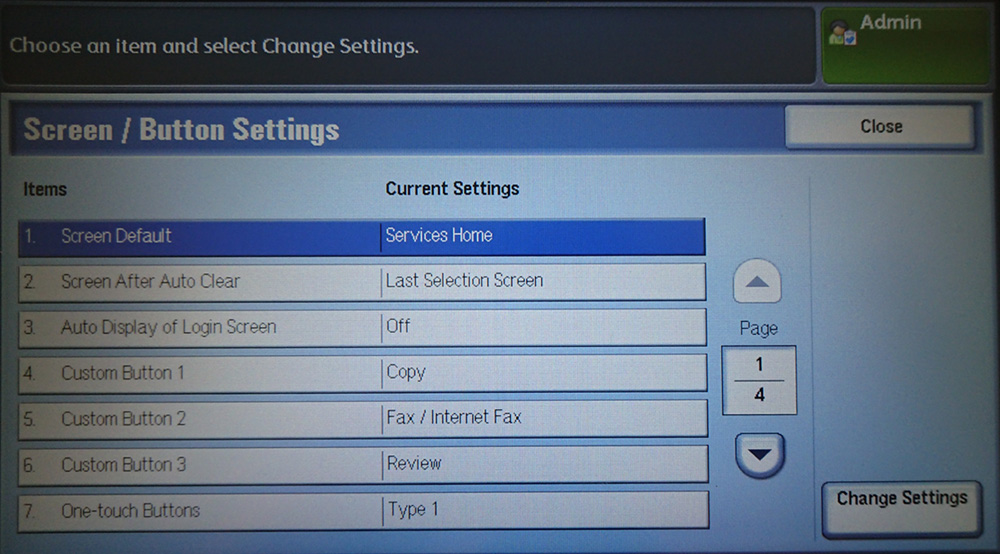
3 Press Web Application Server 1 ~ 3 (YSoft SafeQ applications) you want to set and press Save.
YSoft SafeQ Terminal Application - 1st Gen
Web Application Server 1
YSoft SafeQ Terminal Application - 2nd Gen
Web Application Server 1 (Print)
Web Application Server 2 (Scan)
Web Application Server 3 (Billing Codes)
